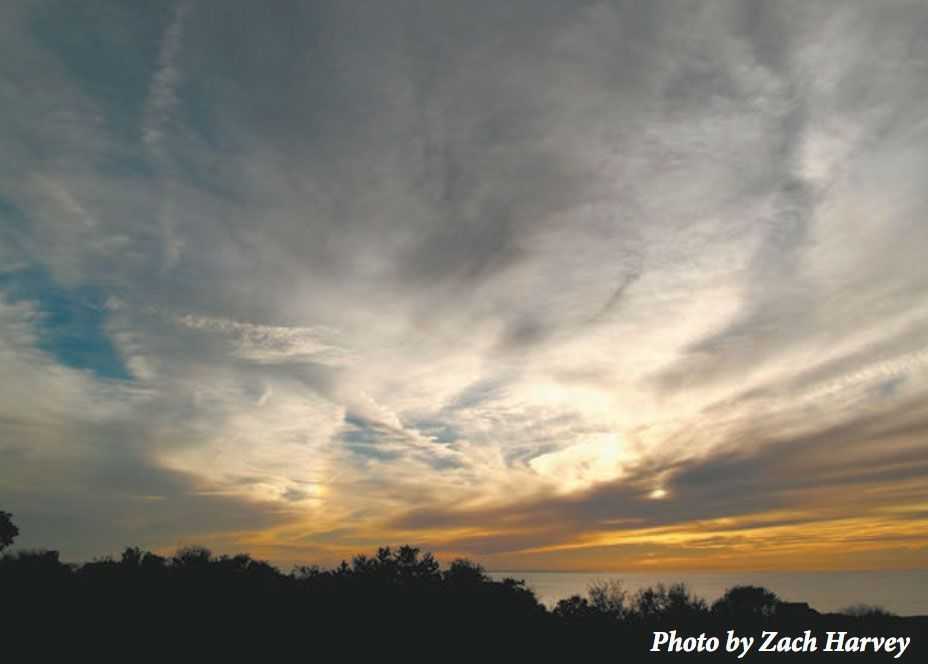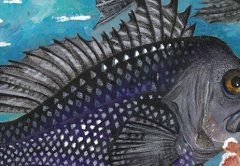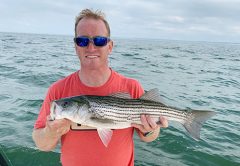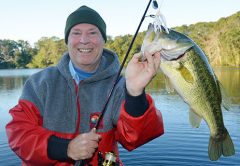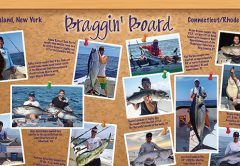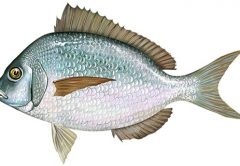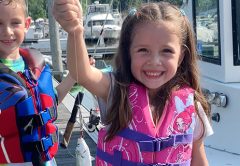It might be said—and no doubt has been by droves of writers wiser than I—that the relationships with those we love most are always our most complicated. I’d extend that idea to places as well: Myriad factors of timing—our age, life circumstances, wisdom (or lack thereof), our impulses, our financial means and/or liabilities have much to do with the way we imprint and store memories and construct personal meaning.
I shot out to Block Island on a hair-brained impulse one day during spring break my freshman year of school. That day, without leaving Old Harbor, I nailed down a gig in the fish market and all-important employee housing, caught a boat back to the mainland. I finished out the year, and, a month later, returned to Block Island with my frame pack, one duffel bag, and three surf rods. The following summer, smitten with the place, I met Sarah, fell wildly in love, and a decade after that, married her.
Among many other things, Block Island was the playground of my late teens and 20s, the place I made first contact with the fishing industry, the place I roughed out my adult independence, the place I was first fired for drilling a tourist in the head with a lemon, the place I met a large number of my closest friends.
After two summers in the fish market, I took my first site on deck, and launched into another distinct part of my connection to Block Island—the untold thousands of hours I’ve spent fishing within earshot of the place over the almost 20 intervening years. My other Block Island has been the backdrop for some incredible trips targeting almost every species known to bunch up there—stripers, blues, bluefins, bonito, false albacore, cod, sharks, fluke, scup, sea bass, tautog, hake, whiting, monkfish, dogs, mackerel, herring, squid, butterfish, winter flounder—on rod and reel or, later on, various commercial gear types. Block Island has been my office for years on deck. It has stood watch over some of my best, most lucrative, longest, most brutal, and also unexceptional stints on a pitching deck. The Island has scorned me from every horizon through horrendous weather of every sort, flashing into view then disappearing on endless repeat between mountainous rolling seas. The Island has been a harbinger of “home” and all that entails—the eerie wink of Southeast Light along the northern horizon lifting sodden spirits on eternal steams home from faraway grounds. So many fall days and nights, the wind smoking across the Sound, the same two-humped land mass has become a distant abstraction twinkling along the southern horizon like some boat I’d missed.
So many other nights I’d fish Block Island via Point Judith, my family “home” and sleeping on the island that was disappearing astern as I cut my way toward an empty apartment on the mainland.
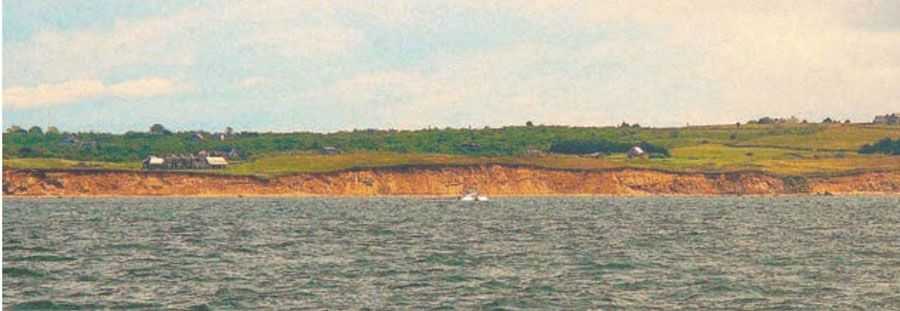
The island has been my workplace and the place I’ve gone to flee from professional toil. I’ve taken the ferry home in both directions—to the island and off-island. It has been a place of absolute peace, and a place of great upheaval. Over the years I’ve known the place, a shocking percentage of my friends who grew up on the Island have been priced off the lands where they grew up, cashed out after years battling cost of living and a small-business economy hobbled by staggering overhead, or fled the place—haunted by the degree of change since Manhattan discovered the Island around 2000, or unable to face another bipolar cycle, drowning in tourists all summer and then exiled again by the frozen winds.
Lately, if the place is a getaway for my family and me, it’s also a reckoning of sorts, a place that keeps time in a way I seldom feel it. It is a land of the Lotus Eaters and an Alcatraz. A memorial to human excesses—trophy houses and Margaritas—and also a place that feels purpose-built for monastic contemplation. It can get schizophrenic if you let it, especially with the increasingly violent and abrupt changes of season.
For the first 15 years, I knew two Block Islands—the one underfoot, another by sea. For another short stretch, I lost perspective on the place—hung up on the change and felt dislocated. Last spring, out for a long stretch, I rerooted my soul in Island soil.
I’m not 19, but when I get clear of the tight path through the dense scrub and the beach stretches out beneath the last of a waning moon and I spot a familiar rock off to my left and unstick the rear treble of the needlefish from the reel seat, swing the long lead back and send the plug rocketing out into the dim autumn surf, Block Island is still magical.
Stripers are in trouble—how much trouble remains to be seen. But when I step back from the Island as an abstraction in fisheries management, the night crew is still hitting fish more nights than not slinging eels in the same places that held bass ten years ago. And just as it was ten years ago, it’s the guys who fish every night who are catching them still. So it’s settled as I roll into the lot at North Light: Guess I’ll have to fish every night…
20 years being human anywhere will fill a place with all sorts of complexity. What has saved my Island is getting back in touch with what pulled me across the Sound the first time: The dirt-road island. The deer-path island. The cobble beach with 10 feet of water out front and an alien landscape over my shoulder.
The outpost stands its long watch, oblivious to the changes of the guard, the ebb and flow of Island folk, the incremental changes to a landscape in flux since the last glacier dropped it off like a block of sediment and stone and backed away north. Eons of wind and water, glacial melt—the awesome transformative power of pressure and time—have chiseled, ground, and polished a continent’s rubble into an ancient masterpiece. That’s my Island, a place with a soul that persists in spite of humanity’s ceaseless need to bend the living planet into submission—the only place I trust to keep time as I march through this life, and one fixed point around which I can always keep my bearings in this torrent of accelerating change we call adulthood.
[easy-social-share]

